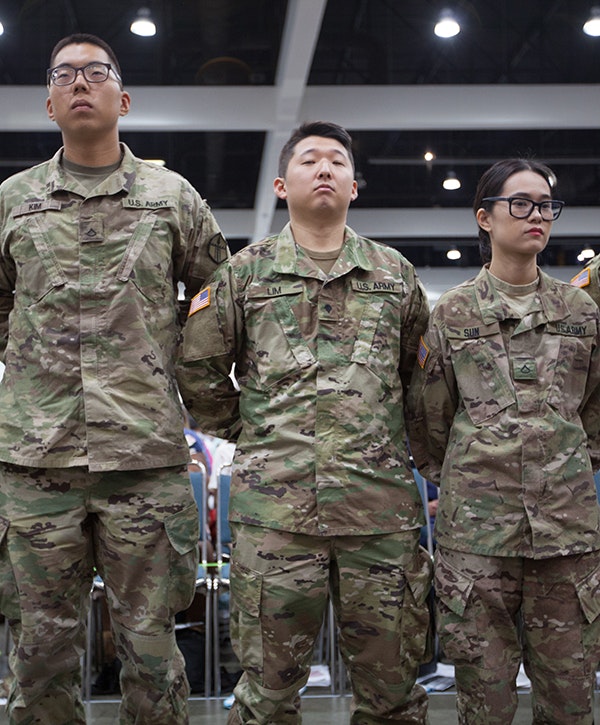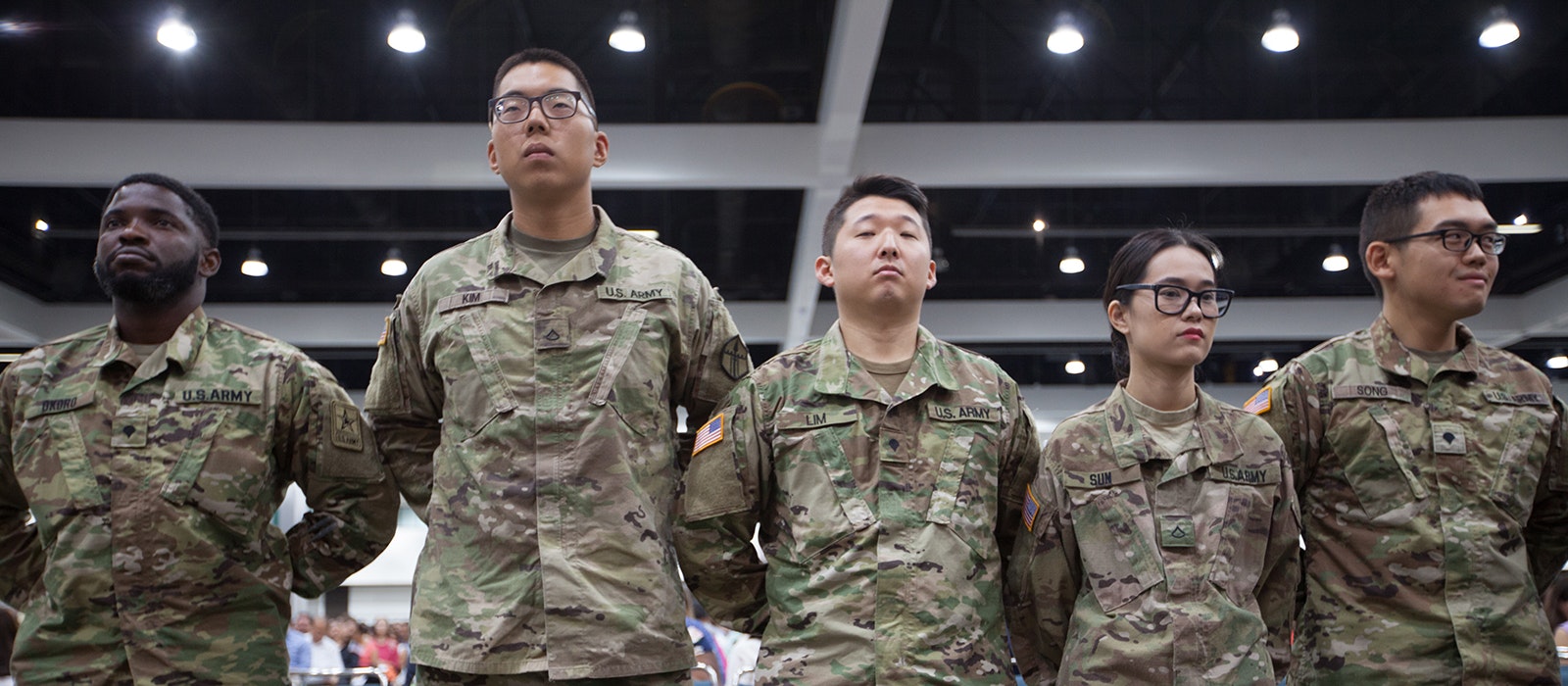Immigrants have served in the United States Armed Forces since the founding of our country, fighting in every major conflict in American history. Hundreds of thousands of immigrants pledged to defend the United States with their lives in the Civil War, both World Wars, and conflicts like those in Vietnam, Afghanistan and Iraq.
FWD.us estimates that approximately 700,000 foreign-born veterans, many of whom are now U.S. citizens, live in the U.S. today. We estimate there are about 45,000 immigrants actively serving.
The most recent government estimates report that about 5,000 legal permanent residents enlist each year. More than 148,000 immigrants have served and earned citizenship through the military in the last 20 years. Over the last century, military service has provided a pathway to American citizenship for more than 760,000 immigrant servicemembers.
But naturalizations of service members have decreased significantly in recent years, dropping by more than 70% from 2016 to 2020; only 2,588 service members naturalized in 2019, compared with 8,885 in 2016.

